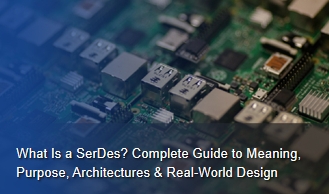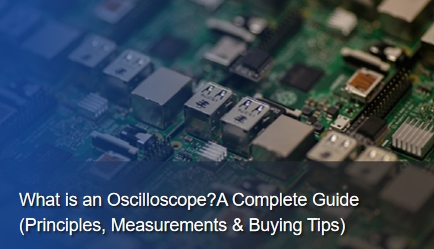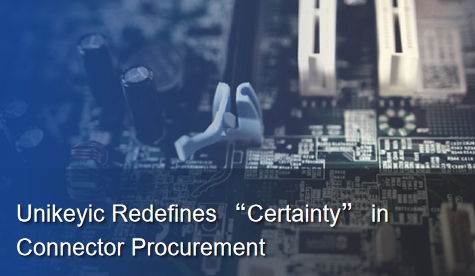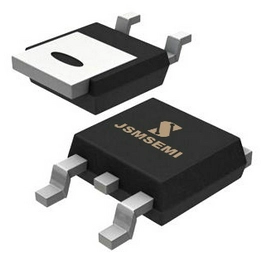Understanding the Role of Security Verification and Encryption Chips
In the digital age, ensuring the security of data and electronic communications is more critical than ever. Security verification and encryption chips play a vital role in protecting sensitive information and maintaining the integrity of digital systems. This comprehensive guide explores the fundamentals, applications, and advancements in security verification / encryption chip, providing a detailed overview of their importance in modern electronics. We'll also examine leading brands in the industry, such as NXP Semiconductors and Microchip Technology, and offer recommendations for sourcing these crucial components from unikeyic Electronics.
1. Understanding Security Verification Chips: Fundamentals and Functions
Overview of Security Verification ChipsSecurity verification chips, also known as encryption chips or cryptographic processors, are specialized components designed to secure electronic systems by performing critical security functions. These chips are integral to ensuring data integrity and confidentiality in a wide range of applications, from consumer electronics to financial systems.
Key Functions of Security Verification ChipsAuthentication: Security verification chips validate the identity of users or devices to prevent unauthorized access. They use techniques such as digital signatures and secure tokens to ensure that only legitimate entities can access or interact with a system.Encryption: These chips encrypt data to protect it from unauthorized access. They employ robust encryption algorithms to convert plaintext into ciphertext, making it unreadable to anyone without the appropriate decryption key.
Data Protection: Security verification chips safeguard sensitive information from tampering and theft. They ensure that data remains confidential and secure during transmission and storage.
2. How Encryption Chips Protect Sensitive Data
Mechanisms of Data ProtectionEncryption chips employ various mechanisms to secure data. When data is transmitted or stored, it is encrypted using complex algorithms, ensuring that even if intercepted, the data remains inaccessible without the proper decryption key. The chips typically handle encryption and decryption processes seamlessly and efficiently, providing robust protection for digital information.
Types of Encryption AlgorithmsAES (Advanced Encryption Standard): A symmetric encryption algorithm widely used for its security and efficiency. It encrypts data using a single key for both encryption and decryption.
RSA (Rivest-Shamir-Adleman): An asymmetric encryption algorithm that uses a pair of keys—a public key for encryption and a private key for decryption. RSA is commonly used for secure data transmission and digital signatures.
3. Comparing Hardware Encryption vs. Software Encryption
Advantages and LimitationsHardware Encryption: Provides enhanced security and performance compared to software-based solutions. Hardware encryption chips are designed to handle encryption tasks efficiently, reducing the risk of vulnerabilities that software might introduce. They offer better protection against physical tampering and unauthorized access.Software Encryption: While flexible and easier to implement, software-based encryption solutions can be more susceptible to security breaches. They rely on the system's processor and memory, which may introduce vulnerabilities or performance bottlenecks.
Use CasesHardware Encryption Chips: Ideal for applications requiring high security, such as financial transactions, secure communications, and data protection in critical systems.
Software Encryption: Suitable for less security-sensitive applications where ease of implementation and flexibility are prioritized.
4. Applications of Security Verification Chips in Different Industries
FinanceIn the financial sector, security verification chips are used in payment systems, ATMs, and secure banking transactions. They ensure the protection of sensitive financial data and prevent fraud.
HealthcareEncryption chips are critical in protecting patient data and medical records. They enable secure communication between medical devices and systems, safeguarding sensitive health information.
Consumer Electronics
In consumer electronics, security verification chips are employed in devices such as smartphones, tablets, and smart home systems. They secure personal information and ensure the integrity of digital communications.
5. Choosing the Right Encryption Chip for Your Application
Factors to ConsiderSecurity Standards: Ensure the chip meets industry standards and regulations (e.g., FIPS, Common Criteria) for security and performance.Performance: Consider the chip's processing speed, encryption algorithms, and power consumption to ensure it meets your application's requirements.
Specialization: Choose between general-purpose and specialized encryption chips based on your specific application needs, such as high-security environments or low-power devices.
6. The Role of Security Verification Chips in Modern IoT Devices
Enhancing IoT SecuritySecurity verification chips play a crucial role in protecting IoT devices from cyber threats. They ensure secure communication between devices and prevent unauthorized access to sensitive data.
Challenges and Solutions
Challenges include managing the security of numerous interconnected devices and handling the limited resources of IoT devices. Encryption chips address these challenges by providing robust security solutions tailored to the constraints of IoT environments.
7. Advancements in Encryption Chip Technology
Recent InnovationsRecent advancements include increased processing power, support for more sophisticated encryption algorithms, and integration with other security technologies. These innovations enhance the performance and security of encryption chips.
Future Directions
Emerging technologies, such as quantum-resistant encryption, are set to revolutionize the field, providing enhanced protection against future threats.
8. Compliance and Standards for Encryption Chips
Relevant StandardsFIPS (Federal Information Processing Standards): Sets requirements for cryptographic modules used in federal systems.Common Criteria: Provides a framework for evaluating the security properties of information technology products.
Meeting Compliance Requirements
Encryption chips are designed to meet these standards, ensuring they provide reliable security and support for regulatory compliance.
9. Impact of Quantum Computing on Encryption Technologies
Future ImpactQuantum computing has the potential to break current encryption methods by rapidly solving complex mathematical problems. The industry is actively developing quantum-resistant encryption solutions to address these future challenges.
Preparing for Quantum Resistance
Research and development are focused on creating encryption algorithms and chips that can withstand quantum attacks, ensuring long-term security for digital information.
10. Case Studies: Successful Implementations of Encryption Chips
Real-World ExamplesSuccessful implementations include secure payment systems, encrypted communication networks, and protected medical data systems. These case studies highlight best practices and the benefits of using encryption chips in various applications.
Lessons Learned
Lessons from these implementations include the importance of selecting the right chip for specific needs, the value of adhering to security standards, and the benefits of integrating encryption technology into system designs.
Frequently Asked Questions (FAQ)
1. What is a security verification chip?A security verification chip is a specialized component used to perform encryption, authentication, and data protection in electronic systems.
2. How do encryption chips work?Encryption chips secure data by converting it into an unreadable format using encryption algorithms. Only authorized users with the decryption key can access the original data.
3. What are the main types of encryption algorithms used in these chips?Common algorithms include AES (Advanced Encryption Standard) and RSA (Rivest-Shamir-Adleman).
4. How do hardware encryption chips compare to software solutions?Hardware encryption chips generally offer superior security and performance compared to software solutions, which can be more vulnerable to attacks.
5. What should I consider when choosing an encryption chip for my application?Consider factors such as security standards, performance, power consumption, and whether a general-purpose or specialized chip is needed.
6. How do encryption chips enhance IoT device security?They provide robust security measures for communication and data protection, addressing challenges related to device interconnectivity and limited resources.
7. What are some recent advancements in encryption chip technology?Innovations include increased processing power, support for advanced encryption algorithms, and integration with other security technologies.
8. How is the industry preparing for quantum computing threats?Research is focused on developing quantum-resistant encryption algorithms and chips to ensure long-term data security.
9. What standards should encryption chips meet?Encryption chips should adhere to standards such as FIPS (Federal Information Processing Standards) and Common Criteria for security and compliance.
10. Can you recommend reputable suppliers for encryption chips?Leading brands like NXP Semiconductors, Microchip Technology, and Unikeyic Electronics offer high-quality security verification and encryption chips.For top-quality security verification and encryption chips, consider exploring offerings from NXP Semiconductors, Microchip Technology, and Unikeyic Electronics. These brands provide reliable solutions to meet various security needs and industry standards.





















